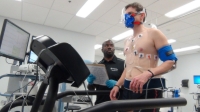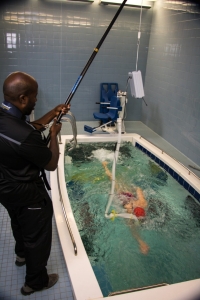VO2 max is an accurate measure of fitness level and can be performed on a treadmill or a cycle ergometer. More specifically, it is the maximum volume of oxygen consumed during an incremental exercise protocol. Throughout the test, participants wear a face mask to collect breath-by-breath physiological data, and electrodes for an electrocardiogram (ECG) are placed on the chest to ensure participant safety.
Cardiopulmonary Suite
The Cardiopulmonary Suite is equipped to conduct research in lung and heart health in a broad range of populations including athletes, healthy, and chronic disease.
Ambulatory blood pressure data can be continuously recorded up to 24 hours using the AmbuloTM 2400. Systolic blood pressure, diastolic blood pressure and pulse rate can be measured in adults 18 years and older.
Ambulatory electrocardiogram data can be continuously monitored over a 24-hour period using the Burdick® 5LR digital holter recorder. This system detects and records pacemaker pulses in accordance with the Association for the Advancement of Medical Instrumentation (AAMI).

A complete lung function test including forced vital capacity (FVC), slow vital capacity (SVC) and maximal voluntary ventilation (MVV) can be measured using our metabolic carts, or our portable spirometry units, all equipped with BreezeSuiteTM software.
Our dedicated walking hallway is 17 metres long by 2.4 metres wide and was designed to host a variety of walking tests without interruption. This space can equally be used for any research activity requiring this type of space. Other spaces are available for longer distance walking tests.
Pulmonary function tests and breath-by-breath physiological data can be captured on the field or on the ice using the Cosmed K4b2. This portable device is designed to capture exercise response including oxygen consumption (VO2), carbon dioxide excretion (VCO2), respiratory exchange ratio (RER), energy expenditure, among others.
The measurement of hemodynamic response can be measured using the following instrument:
- The HIC-4000I Impedance Cardiograph is a non-invasive instrument for detecting and monitoring bioelectric impedance cardiography (ICG) signals. This system is primarily intended for the assessment of heart rate, stroke volume, cardiac output, basal thoracic impedance (Zo), rate of change of impedance (dZ/dt), pre-ejection period (PEP), delta-Z (dZ), heart sounds, and respiratory rate (R). A separate unit (SunTech Tango+™) is used in conjunction with the HIC-4000I Impedance Cardiograph to measure blood pressure.
Using bioelectrical impedance analysis (BIA) devices (Impedimed SFB7 or the Bodystat Quadscan 4000), percent body fat can be directly measured.

Breath-by-breath physiological data can be captured under water using the Cosmed K4b2 along with the Aquatrainer feature. This portable device is designed to capture exercise response including oxygen consumption (VO2), carbon dioxide excretion (VCO2), respiratory exchange ratio (RER), energy expenditure, among others.
Equipment
The Cardiopulmonary Suite is equipped to provide reliable and accurate measurements of pulmonary and cardiac function:
- Blood pressure monitors
- Bioelectrical impedance spectroscopy unit
- Bio-impedance analysis unit
- Cosmed portable metabolic system
- Cosmed underwater portable metabolic system
- Metabolic carts
- Portable spirometry unit



